Sanyin Siang
June 21, 2024
“What is your biggest weakness?”
We’ve all been asked this dreaded interview question. You’re probably thinking of your canned response right now: You’re a perfectionist. You focus too much on the details. You have a hard time shutting off after work hours.
It’s a challenging question. But in my years as a CEO advisor, I’ve discovered one that’s often even harder for my clients to answer: “What are your greatest strengths?”
Everybody from corporate CEOs to MBAs to undergraduates, I’ve found, tends to focus more on identifying and remedying their weaknesses than on celebrating their strengths. As a result, most people have less insight into what they’re great at than where they need to improve.
Why do we tend to over-index on our weaknesses? And is there a way to begin uncovering and focusing on our strengths instead?

WHY WE FIXATE ON OUR WEAKNESSES
There are many reasons for why we tend to think more about our weaknesses than our strengths:
- WE LIVE IN A “FIXING” SOCIETY.
From a very young age, many of us are conditioned to focus on our development areas over our achievements — by our parents, teachers, and society in general. In his book Now, Discover Your Strengths, Marcus Buckingham notes that when a child comes home with a report card showing weakness in science but excellence in reading, parents are more likely to focus their efforts on fixing the weakness rather than honing the excellence.
2. WE EXPERIENCE NEGATIVITY BIAS.
Another reason has to do with our psychology. Researchers at the University of Pennsylvania argue that as a species we have a negativity bias — that is, we weight negative data more than positive data. This tendency probably benefited us evolutionarily by helping us to be cautious. Now, however, it causes us to discount positive information, making it hard for us to value our strengths.
3. WE DEVALUE WHAT COMES MOST NATURALLY TO US.
The longer I’ve been an educator, mentor, and executive coach, the more convinced I am that — while individuals tend to have a general sense of what they’re good at (their general strengths) — they overlook their true talents and capacities (their innate strengths). When you’re naturally good at something or have honed an instinct for something over a long period of practice, it comes easily to you. We tend to discount what comes easily to us, and instead, are conditioned to value those things that are challenging or that we have to work at.
We might do this because we wrongly assume that what’s easy for us must be easy for everyone, or because these strengths are so core to our beings that we simply overlook them.
GENERAL AND INNATE STRENGTHS
It’s clear that many of us — whether through instinct or experience — have developed a tendency to overlook what we’re good at. But this behavior can be unlearned. The first step is understanding the difference between your general strengths and your innate strengths.
General strengths are competencies and are often driven by externally motivating factors. Think of the skills you have to acquire for your work (maybe working with Excel spreadsheets) or your daily life (maybe diapering a baby).
Innate strengths, on the other hand, are internally motivated and oriented. These strengths are instinctive, differentiating, and energizing. Because they come easily to us, we might even feel intrinsically motivated to do them. For example, if there’s part of a project you find yourself consistently starting with, or a task you particularly enjoy, it probably requires skills that you’re innately good at.
In other words, your innate strengths are the things you do so naturally that you don’t notice them, or the things that you dismiss by saying, “Oh, I would do that for free!” But when you fail to recognize your innate strengths, you also fail to see what makes you inimitable. When that happens, you miss out on opportunities to leverage your greatest skills in ways that can benefit your work, team, and society. You need to understand what sets you apart in order to use those skills to truly shine in your role.
So how do you go about it?
HOW TO IDENTIFY YOUR INNATE STRENGTHS
Because most of us overlook our innate strengths, we often need external data to help us recognize them. There are several ways to begin gathering that data:
- ASK YOUR MENTORS AND TRUSTED COLLEAGUES FOR FEEDBACK.
A study done at Princeton in 2007 on the “introspection illusion” demonstrated that we are notoriously bad at seeing ourselves clearly. We’re particularly bad, it turns out, in recognizing how our actions can be perceived, misperceived, and potentially misinterpreted.
The point is: Sometimes we need to gather feedback, and hear multiple perspectives, to see the big picture. In this case, asking a mentor or a trusted colleague for feedback can help you step outside yourself and gain insight into your innate strengths. Mentors, in particular, are often in a matchless position, with great perspective and access to comparative data on you and your peers. They’re able to see what makes you different, even if you can’t see it yourself.
Ideally, whoever you speak to is someone who knows you well and who has seen you work in various environments or situations. They should have enough examples to pull from, and you should trust them to honestly share their observations. Their feedback will also give you a deeper sense of what they value.
Some useful questions you can ask include:
— What makes me a good contributor to teams and projects?
— What situations do you think I thrive best in?
— When we work together, what do you notice about me that’s distinct from what others are adding?
— What type of work do you see me get excited and energized by?
— What is the first adjective that comes to mind when you think about me or my work?
You might initially feel awkward doing this, but if you provide the other person with context — that you are seeking to better understand your strengths — people who care for you and are invested in your success will be happy to help.
During the conversation, listen closely to their answers, and ask follow-up questions to dig deeper into specific behaviors. For example, you may think you’re strong in one area, but your mentor or colleague may have evidence that proves you’re stronger in another.
This happened in my own life. I’m a natural introvert with a studious nature, and I always believed my greatest strengths revolved around heads-down work, like writing and laboratory science. Through feedback from a friend, however, I learned that one of my innate strengths is being a connector of people. This friend highlighted that — on multiple occasions — she had observed me taking time to learn and understand the stories of the people I was engaging with, and then using that knowledge to connect individuals with similar backgrounds and interests. The conversation revealed an innate strength that I had previously taken for granted and should have been leaning into.
2. PUT YOURSELF IN NEW SITUATIONS.
I like to use the language of “activation” when I talk about innate strengths: Some of your strengths may not “activate,” or rise to the surface, until you’re in the right situation. Try mixing things up at work by attending a meeting with a different team or working on a cross-departmental project that piques your interest. Through these opportunities, you may find yourself naturally leaning into certain tasks or responsibilities — things you enjoy doing voluntarily and that could give you hints into what your innate strengths are.
Of course, it’s not only positive situations that are revelatory. Sometimes, you may not know what your innate strengths are until you’re in crisis or put under pressure in ways that force you to stretch your comfort zone and exercise new muscles. So, next time you’re asked to learn a new skill or take on new responsibilities in your role, consider that — although it may feel uncomfortable — it may also be an opportunity to discover a new innate strength.
3. BE AWARE OF YOUR BIASES.
The behavioral scientist Troy Campbell has said that everyone needs to be more aware of their egocentric bias. “Whatever way we assess the world is the way we believe the world to be,” he once told me, “and how we understand people is often through the lens of ourselves. If we are feeling one way, we tend to project onto others that they’re feeling the same way.”
The bias Campbell discusses can also cause us to project our strengths onto others — and then, when they fail to live up to the standard that we’ve held them to, we’re disappointed.
If you make an effort to become aware of this bias, and if you pay attention to when you feel it coming on, you can also gain more awareness around your innate strengths. The next time someone doesn’t perform according to your expectations, pause, and take a moment to reflect. Ask yourself:
— Why am I getting frustrated in this moment?
— What is driving my expectations around this other person’s performance?
— Do I feel they lack a certain skill or strength?
— Do I feel this way because it’s a skill or strength that comes more easily to me?
If somebody takes longer to complete a project than you think they should, for example, is that because they’re not good at managing their time — or is it because you’re innately strong at the work they’re doing?
+++
In a world that asks you to obsess over self-improvement, I want to encourage you to forget about your weaknesses for a while. They’ll still be there when you come back to them. Instead, do the most radical thing you can: Work to identify and develop your innate strengths, and then use them with intention.
c.2025 Harvard Business Review. Distributed by The New York Times Licensing Group.
This HBR article was legally licensed through AdvisorStream.


